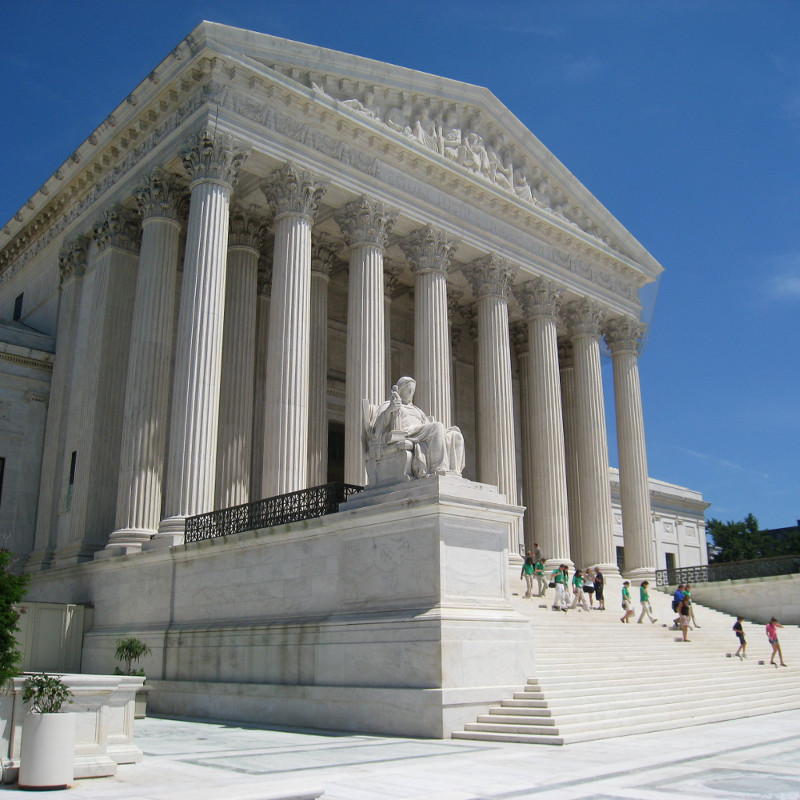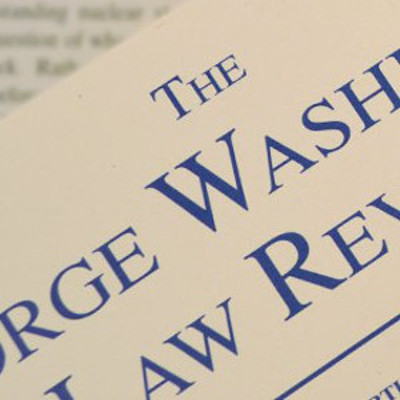On the Docket’s Preview of October Supreme Court Arguments
Welcome to the second year of On the Docket’s Supreme Court Previews! Started last year, with the Court’s October 2015 term, two members of the Law Review’s online team began writing monthly previews. Drawing from primary and secondary sources, each month the online team puts together previews of the cases that will be heard by... Read More
The FPA and the Private Right to Preempt
Matthew R. Christiansen · September 2016 84 Geo. Wash. L. Rev. Arguendo 130 The boundary between state and federal authority over the electricity sector is in flux. A host of new technologies is rapidly changing how electricity is generated and consumed. At the same time, state and federal regulators are adopting novel laws and regulations... Read More
The Constitutionality of SEC Administrative Law Judges: Exploring Hill v. SEC
Maxwell Weiss · 84 Geo. Wash. L. Rev. 1407 · There has recently been a series of challenges to the U.S. Securities and Exchange Commission’s (“SEC”) use of Administrative Law Judges (“ALJs”) to preside over enforcement actions. In one of those challenges, Hill v. SEC, Judge Leigh Martin May of the Northern District of Georgia ruled that... Read More
Disclosure, Eventually: A Proposal to Limit the Indefinite Exemption of Federal Agency Memoranda from Release Under the Freedom of Information Act
Kyle Singhal · 84 Geo. Wash. L. Rev. 1388 · On June 30, 2016, President Barack Obama signed into law the FOIA Improvement Act of 2016, which made some headway towards increasing agency compliance and efficiency with Freedom of Information Act (“FOIA”) requests. The Act requires, among other things, the creation of a consolidated online FOIA request... Read More
In Defense of Churches: Can the IRS Limit Tax Abuse by “Church” Impostors?
Lidiya Mishchenko · 84 Geo. Wash. L. Rev. 1361 · A large gap in our Tax Code allows certain religious organizations to amass extraordinary riches while preying on the faithful. Their conduct is causing damage to the church as an institution and is inconsistent with the purpose of tax exemptions—to provide a public good. This Essay proposes... Read More
Using Interpretive Methodology to Get Out from Seminole Rock and a Hard Place
Matthew Mezger · 84 Geo. Wash. L. Rev. 1335 · Though not directly at issue in Perez v. Mortgage Bankers Association, several of the Supreme Court Justices felt compelled to question the legal validity of Auer deference. This rule granting agencies deference when interpreting their ambiguous regulations has been a longstanding precedent in administrative law, but several... Read More
Revisiting the Public Rights Doctrine: Justice Thomas’s Application of Originalism to Administrative Law
Laura Ferguson · 84 Geo. Wash. L. Rev. 1315 · Administrative agencies today adjudicate vastly more disputes than do Article III courts. The constitutional underpinnings of the administrative agency’s adjudicative power remain somewhat murky, however, as does today’s conception of which cases administrative agencies can appropriately adjudicate. The Supreme Court has said that Article III courts alone... Read More
The Future of Deference
Richard J. Pierce, Jr. · 84 Geo. Wash. L. Rev. 1293 · In this Essay, Professor Richard Pierce describes the history of the deference doctrines the Supreme Court has announced and applied to agency interpretations of ambiguous statutes and rules over the last seventy years. He predicts that the Court will continue to reduce the scope and... Read More
Preambles as Guidance
Kevin M. Stack · 84 Geo. Wash. L. Rev. 1252 · Debates over administrative agencies’ reliance on guidance documents have largely neglected the most authoritative source of guidance about the meaning of agency regulations: their preambles. This Article examines and defends the guidance function of preambles. Preambles were designed not only to provide the agency’s official justification... Read More
Chevron Bias
Philip Hamburger · 84 Geo. Wash. L. Rev. 1187 · This Article takes a fresh approach to Chevron deference. Chevron requires judges to defer to agency interpretations of statutes and justifies this on a theory of statutory authorization for agencies. This Article, however, points to a pair of constitutional questions about the role of judges—questions that have... Read More


